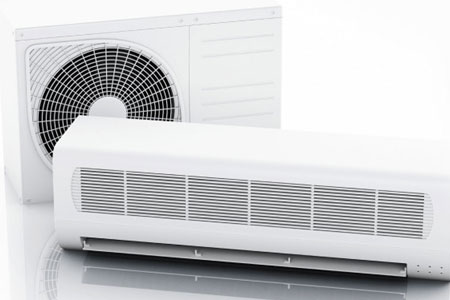However, they can also become a significant energy sink, impacting both the environment and your wallet. To tackle this issue, we’ve compiled expert advice on optimizing the energy efficiency of your AC unit. This not only keeps your living space cool but also minimizes the strain on your wallet. From regular AC maintenance to understanding your HVAC system, our tips will help you make the most of your air conditioning system and prevent AC repair. Learn how to prevent clogs, when to call in a technician, and more to maximize your AC’s efficiency.
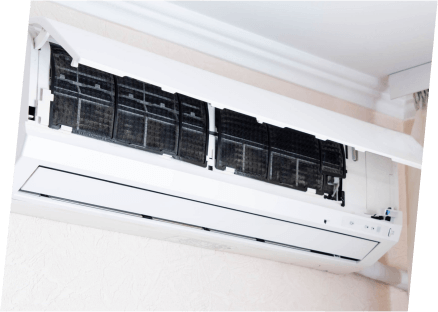
Change Your Air Filter Regularly
One of the simplest yet most effective steps is changing your air filter regularly. A dirty air filter can impede airflow, forcing your AC unit to work harder and resulting in increased energy consumption and higher utility bills. To keep your air conditioner operating at its best, replace the air filter every 1-3 months, adjusting the frequency based on usage and the dustiness of your home. This straightforward maintenance tip can significantly reduce your air conditioner’s energy consumption, allowing you to stay cool and save on energy costs.
This practice aligns with recommendations from the Department of Energy, which suggests that replacing a dirty filter can lower your air conditioner’s energy consumption by up to 5%. It’s a small effort with big rewards in both keeping your home cooler and your energy use more efficient.
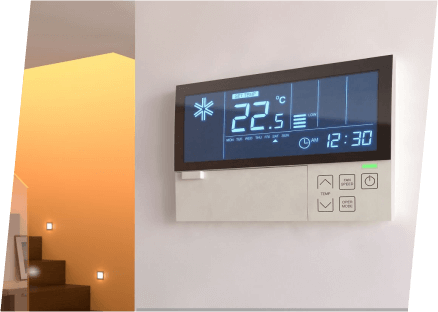
Set Your Thermostat to a Comfortable Temperature
Efficiently managing your home’s cooling system can make a substantial difference in both comfort and energy costs. A significant aspect of this is setting your thermostat to a comfortable yet energy-conscious temperature. Optimal control over your thermostat can lead to substantial savings. A recommended starting point is around 78 degrees Fahrenheit, allowing you to enjoy cool air without overworking your AC. Make minor adjustments as needed to strike the right balance. It’s worth noting that the higher you set your thermostat, the less energy your AC unit will consume. This small adjustment can significantly impact your energy consumption and help keep your home comfortable throughout the summer season.
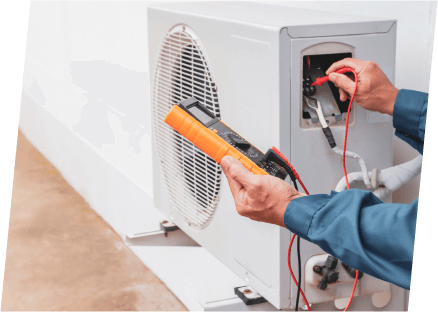
Use a Programmable Thermostat
A programmable thermostat offers a simple yet effective way to manage your cooling system efficiently. With this smart device, you can schedule your AC unit to turn on and off at specific times of the day, aligning with your daily routine. By preventing your AC from running unnecessarily when you’re not at home or during sleeping hours, you’ll significantly reduce your energy consumption. This straightforward adjustment not only adds convenience but also contributes to substantial energy savings, ensuring you have a clean and comfortable home without incurring excessive costs.
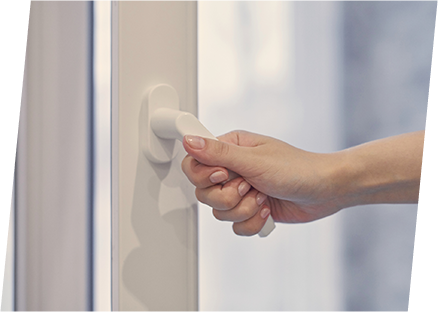
Keep Your Doors and Windows Closed
One of the fundamental principles of maximizing energy efficiency for your AC unit is to maintain a well-sealed home environment. When you keep your doors and windows closed, your AC unit doesn’t have to work as hard to cool your living space. This practice prevents cooled air from escaping and hot air from infiltrating, ensuring that your AC operates at peak efficiency. Additionally, closing curtains and blinds during the day can help keep out sunlight and heat, reducing the load on your cooling system.
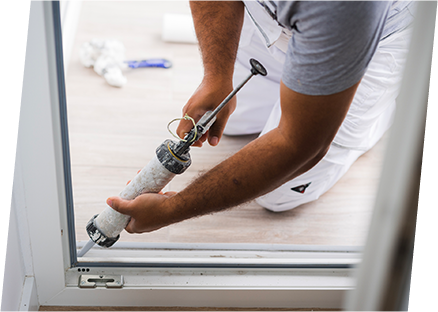
Seal Any Air Leaks Around Doors and Windows
Efficiency in your AC unit’s operation hinges on creating an airtight home environment. Air leaks around doors and windows can be a significant culprit in letting out precious cold air and allowing hot air to intrude. This forces your AC to work harder and consume more energy. Whether it’s through sealing air leaks or upgrading to a professional garage door installation, it’s crucial to minimize any gaps. Utilize tools like caulk or weatherstripping to seal any air leaks. By ensuring your living space is well-insulated, you not only prevent cooled air from escaping but also shield your home from the summer heat. This simple step not only boosts your AC’s effectiveness but can also help you save substantially on energy costs, keeping your home comfortably cool.

Maintain Your AC Unit Properly
Ensuring your unit’s longevity and optimal performance hinges on regular AC maintenance. This is not just about saving money but also conserving energy. To keep your AC unit running smoothly and efficiently, it’s advisable to schedule a professional tune-up at least once a year. During these maintenance checks, technicians can identify and address issues such as dirty coils, clogs, or refrigerant leaks that could hamper efficiency. Proper maintenance also includes tasks you can do yourself, such as regularly cleaning or replacing the air filter. This comprehensive approach to AC maintenance ensures that your unit operates at its best, saving both energy and money and keeps you cool during the scorching summer months.
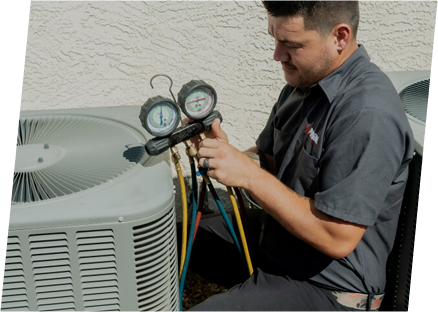
Clean the Condenser Coil
A well-maintained condenser coil is key to the efficient operation of your AC unit. The condenser coil, located in the outdoor unit, plays a vital role in releasing heat from your home. When it’s dirty, it can restrict airflow, forcing your AC unit to work harder and resulting in higher energy consumption. To maintain optimal performance, it’s crucial to regularly clean the condenser coil. You can use a garden hose or a brush and coil cleaner for this purpose. By ensuring your condenser coil is free from dirt and debris, you not only enhance your AC’s efficiency but also prolong its lifespan. This simple maintenance step goes a long way in maximizing energy efficiency and saving you money in the long run.
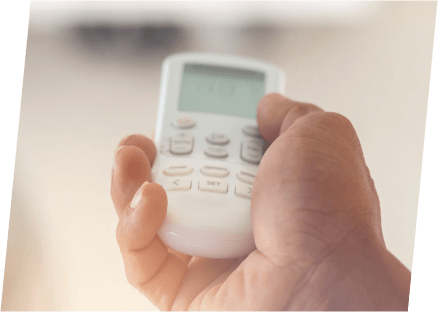
Check the Refrigerant Levels
Refrigerant is the lifeblood of your AC unit, responsible for absorbing heat and cooling your home. When the refrigerant level is low, your AC system won’t be able to efficiently deliver the cool air you need. To ensure optimal performance, it’s essential to have a professional technician check the refrigerant level regularly. They can identify any deficiencies and, if necessary, add more refrigerant to the system. Maintaining the correct refrigerant level is critical in preventing your AC unit from working harder than necessary, which can lead to increased energy consumption. This simple step not only maximizes energy efficiency but also helps keep your home comfortably cool during the scorching summer months.
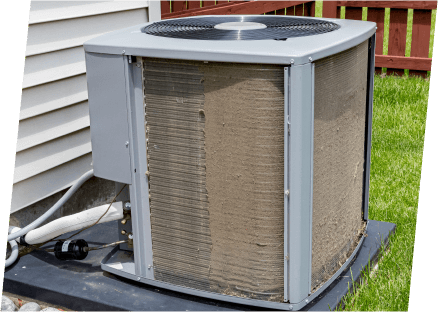
Consider Replacing Your AC Unit
As you strive to maximize energy efficiency, the age and efficiency of your air conditioning unit become crucial factors. If your unit is aging or inherently inefficient, it may be time to explore the advantages of an AC replacement.
Modern AC units are engineered with enhanced energy-efficient technologies, surpassing the performance of older models. When considering a new unit, look for a high SEER (Seasonal Energy Efficiency Ratio) rating. A higher SEER rating signifies improved energy efficiency and can translate into significant long-term savings on energy costs. Investing in a newer, energy-efficient HVAC unit not only keeps you cool but also contributes to a greener and more cost-effective approach to home cooling.
Maximizing Energy Efficiency for Your AC Unit
In the quest for a more energy-efficient home, your AC unit stands as a pivotal player. By following the practical tips provided in this article, you can harness the power of energy efficiency while enjoying a cooler, more comfortable living space. From routine maintenance to sealing gaps and considering a new, high-SEER AC unit, each step holds the potential to significantly reduce your energy consumption and lower your utility bills.
Maximizing energy efficiency isn’t just about saving money; it’s about reducing your environmental footprint and contributing to a more sustainable future. We encourage you to take these actionable steps and share your feedback or questions with us. Let’s embrace energy-efficient cooling and make a positive impact on both our wallets and the planet.
situs hk toto slot toto slot slot thailand situs slot gacor toto togel toto slot slot online situs toto situs togel bento4d login toto slot situs gacor

